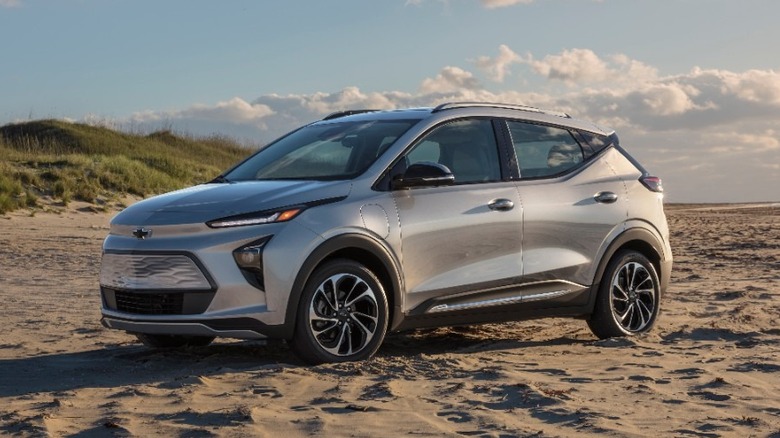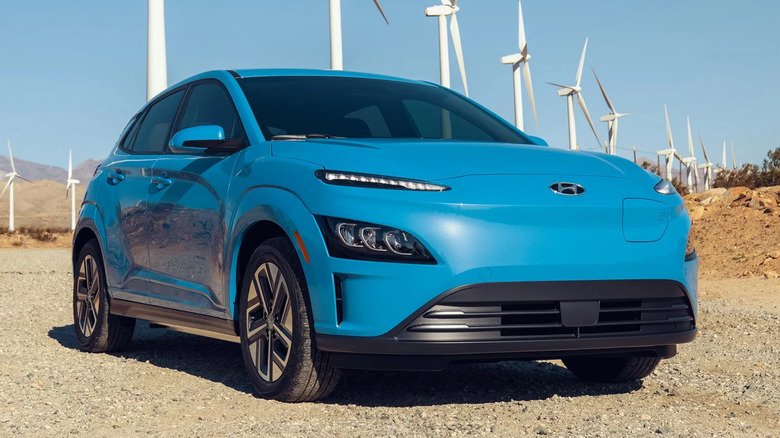How To Qualify Almost Any EV For U.S. Tax Credit
As part of 2022's Inflation Reduction Act, new tax credits were made available to encourage more Americans to drive eco-friendly vehicles. In order to receive the maximum credit of $7,500, taxpayers must acquire a new all-electric vehicle. That purchase has always had some strings attached such as the vehicle's price and weight, as well as limits on the buyer's income. In April 2023, the process got more complicated when a layer of manufacturing standards was enforced.
Now, the tax credit for purchasing a new EV is tiered, with $3,750 available if 50% or more of the battery components are manufactured in North America and a further $3,750 if 40% or more of the vehicle's critical minerals are sourced from the United States or one of its trade partners. Currently, there are only about a dozen EVs that qualify for the full tax $7,500 credit and they're almost exclusively from American automakers like Ford, GM, and Tesla.
But what if we told you that there was a way to make almost any make or model EV qualify for the full $7,500 tax credit, regardless of its origin or the origin of its parts? Well, there is — you just need to lease the car rather than buy it.
Stretching the definition of commercial vehicle
The leasing loophole is possible because the Inflation Reduction Act classifies leased automobiles as commercial vehicles, which aren't held to the same battery and mineral sourcing standards as personal vehicles that are purchased. The publicized intent of the legislation was to incentivize legitimate commercial users like rental car companies and rideshare fleets to go green, but the definition of "commercial" was broad enough to include personal leases, as well.
It's a controversial policy — and one that was heavily influenced by the will of foreign automakers, particularly Hyundai and Kia, as reported by Reuters. A loud voice of opposition comes from U.S. Senator Joe Manchin (D-WV), who said "The information released today from the Treasury Department outlining how they will be implementing the commercial and consumer EV tax credits bends to the desires of the companies looking for loopholes and is clearly inconsistent with the intent of the law. It only serves to weaken our ability to become a more energy-secure nation."
Make sure the lease company isn't pocketing the credit
If you want to take advantage of the leasing loophole, there is a major pitfall to watch out for. A leased car is technically owned by the leasing company, an entity that's typically, but not always, related to the automaker. As such, it's the leasing company that actually claims the tax credit, so it's up to them to pass the funds on to the lessee, usually in the form of lower monthly payments.
For example, Cox Automotive senior economist Charlie Chesbrough told CNBC that when leasing a $50,000 EV for a 36-month term, the $7,500 tax credit discount will amount to a whopping $222 per month slashed from the payment. However, the leasing company isn't required to pass on the tax credit to the lessee, so you'll definitely want to ask specifically. American automaker Tesla notoriously refuses to discount lease payments and pockets the tax credit.
An added benefit of leasing is that besides circumventing the restrictions placed on the origin of batteries and minerals, leasing also ignores the price of the vehicle and the income of the lessee with regard to receiving tax credits. According to auto research firm Edmunds, a full 37% of EV drivers chose to lease their vehicles in April 2023, compared with 13% a year earlier.


